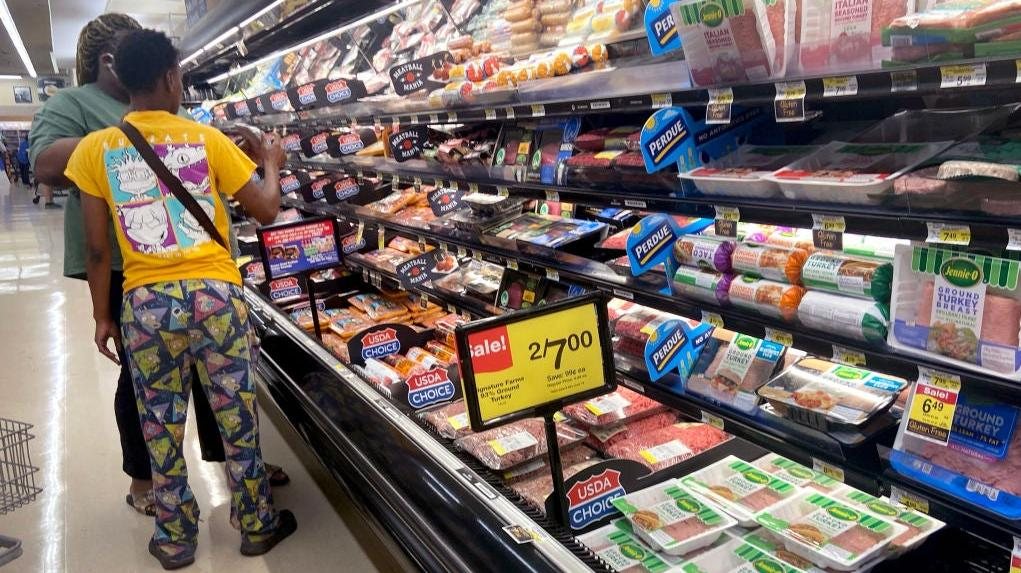Four Food Companies Control 80% Of All American Groceries
Corporations dominate all sectors, from seeds and fertilizers to craft beer.
Attention conspiracy theorists: here's something new to obsess over. A new joint investigation by The Guardian and Food & Water Watch has determined that a few large corporations control about 80% of American food. Not just groceries. Not just slaughterhouses. Not just snack food. All of it, from seeds to the cereal aisle. Remember reading in American history class how, during the Gilded Age, a few guys controlled all the banks? It's sort of like that.
In a separate story, The Guardian published some of the highlights (or maybe lowlights):
- A survey of 61 standard grocery items revealed that 79% were produced by four megacorporations.
- One company, PepsiCo, controls 88% of the nation's dip market.
- 93% of the soda market is held by three companies: Coke, Pepsi, and Keurig Dr. Pepper. Coke alone controls 42.4% of the market.
- Three firms manufacture 73% of cereals commonly found in supermarkets.
- Four firms control 80% of beef processing and 70% of pork.
The full investigation includes interactive charts that show how much of the market for various products, ranging from dried pasta to canned tuna, are controlled by specific mega-corporations. Even sectors you'd think might be immune, like craft beer, are monopolized by the corporations: between 2011 and 2020, Anheuser-Busch InBev acquired 17 independent brewers. Large corporations also control supermarket private labels, since many smaller local chains have been swallowed up larger national ones.
What does that mean for you, the ordinary consumer who just wants to buy a box of spaghetti and a can of tomatoes to make dinner? Well, you might be paying more for it. Corporate consolidation drives up prices, both at grocery stores and in the commodities market. And while these corporations are charging consumers more, they're paying farmers and workers less. It's a profoundly screwed up system, which isn't helped by the fact that corporate interests support food lobbies that overwhelmingly support Republicans, who aren't very interested in government regulation of industry.
So what can you do about it? Shop local, the experts say—if you can. But that's also part of the problem: it's so huge that even if you go in with the best intentions, you almost can't help but contribute to it.
